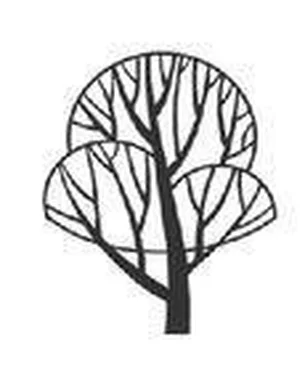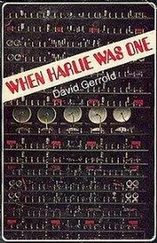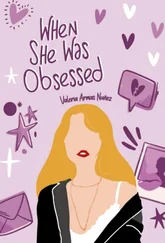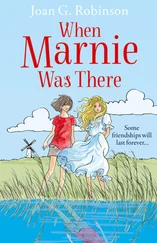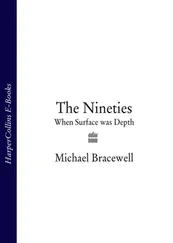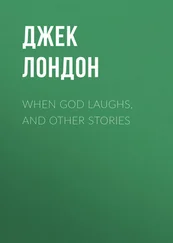Winman, Sarah - When God Was a Rabbit
Здесь есть возможность читать онлайн «Winman, Sarah - When God Was a Rabbit» весь текст электронной книги совершенно бесплатно (целиком полную версию без сокращений). В некоторых случаях можно слушать аудио, скачать через торрент в формате fb2 и присутствует краткое содержание. Жанр: Старинная литература, на английском языке. Описание произведения, (предисловие) а так же отзывы посетителей доступны на портале библиотеки ЛибКат.
- Название:When God Was a Rabbit
- Автор:
- Жанр:
- Год:неизвестен
- ISBN:нет данных
- Рейтинг книги:4 / 5. Голосов: 1
-
Избранное:Добавить в избранное
- Отзывы:
-
Ваша оценка:
- 80
- 1
- 2
- 3
- 4
- 5
When God Was a Rabbit: краткое содержание, описание и аннотация
Предлагаем к чтению аннотацию, описание, краткое содержание или предисловие (зависит от того, что написал сам автор книги «When God Was a Rabbit»). Если вы не нашли необходимую информацию о книге — напишите в комментариях, мы постараемся отыскать её.
When God Was a Rabbit — читать онлайн бесплатно полную книгу (весь текст) целиком
Ниже представлен текст книги, разбитый по страницам. Система сохранения места последней прочитанной страницы, позволяет с удобством читать онлайн бесплатно книгу «When God Was a Rabbit», без необходимости каждый раз заново искать на чём Вы остановились. Поставьте закладку, и сможете в любой момент перейти на страницу, на которой закончили чтение.
Интервал:
Закладка:
‘It’s all right,’ I said to him, and he smiled at me and took his hand away from his mouth and concentrated on the green world outside. I lifted god out of his box and showed him his new home.
‘You’ll be safe here,’ he whispered.
The road levelled out and as we took a sharp right, it lost its tarmac surface and soon the car was riding uncomfortably on rocks and gravel and compacted dirt. We stopped in front of a dilapidated wooden gate, TREHAVEN carved down the left-hand gatepost. Moss had bedded down within its curves and edges, and made the lettering vivid green against the damp darkness of the wood. My father turned off the ignition. I held my breath, not wishing to impede on the sounds of birds and forest life; I was still an observer, a participant not yet.
‘We’re here,’ my father said. ‘Our new home. Trehaven.’
We saw the removal van first and the clearing, and then finally emerging into sight came the house: large and square and off-white in the sunshine, and standing alone except for a small dilapidated outbuilding hiding in the shadow at its side. A small tree had taken sole occupancy of the neglected space within; its branches reaching for the sky.
I got out of the car and stretched, felt small in the shadow of our home. This was a house for rich people and as I stood looking at its grace and majesty, I suddenly remembered that we were.
I put god on a lead and ran down the lawn with him towards the river, carefully negotiating my footing on the flimsy mooring planks. They were rotten; eaten away by years of salt and wet and neglect, and there was a boat attached by rope, holed and half submerged, but clinging to its home like an elder with nowhere else to go.
‘What do you think?’ said my brother, suddenly behind me.
I startled and turned around quickly, for this was the land of spirits and sprites and other beings too light to elicit the sound of tread.
‘Look!’ I said, pointing to the river. ‘A fish!’
And my brother lay down on the jetty and placed his hands gently into the cold water. The fish darted to the side. I watched him look at himself; follow the ripple of his reflection as the waters slowly rose around his fingertips. I heard him sigh deeply. A melancholy sound.
‘How old am I?’ he asked.
‘Fifteen,’ I said. ‘Still young.’
A kingfisher flew overhead and landed on the opposite bank. I’d never seen one before.
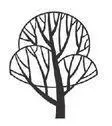
It was the first of May, and the morning air was trying hard to lift my sadness. It blew fresh through the trees, so different from eight months before, when the forest was still and musty, and encroached upon our house like heavy rain clouds that refused to break.
For decades the house had been sheltered from light, and soon its dampness started to camp out in our clothes, in our beds, and in our bones and one lunchtime, five weeks after our arrival, my exasperated mother issued the ultimatum that we either move the house or we move the forest, and in a rare moment of purpose my father went out and bought himself an axe.
It looked clumsy and sinister against his willowy frame, but he was gripped by its fervent calling and strode into the forest alone, shunning all offers of help, all offers of the more practical chainsaws. This was his task, he said, and it would be carried out alone. Penance, my brother reminded me, was a lonely place to be.
And as those oaks were thinned, so the clearing grew and receded from the house, taking the midges and mosquitoes too, and gradually sunshine came to our windows earlier, and light started to pierce that once thick canopy until a new shoot emerged, a flower maybe – a bluebell? – but something rare and unseen before. And soon those fallen trunks became planks, and the shelves our books leant upon, the table that held our fractious discussions, and the jetty that moored the surprise boat we were presented with that first Christmas.
From behind the stone wall I watched the school bus pull away, the second time that week. My parents didn’t know I wasn’t on it, and wouldn’t, not until much later, anyway, when they lifted their heads out of the dust and chaos of renovation. They’d have something to say, of course – they always did – but I didn’t care. That was a long way off and the day was mine.
I headed deeper into the forest where the oldest trees leant towards each other and formed a dome, and where the energy beneath hovered with the potency of a million words of prayer. For months I’d skirted the periphery of groups, laughing at jokes I never found funny, frowning at problems that never seemed insurmountable, only to have those self-same groups turn their backs on me beyond the stilted marker of school gates. ‘Fuck’em,’ my brother said, but I didn’t have the heart to. I wanted to be liked. But I was an outsider. And people didn’t miss outsiders.
I sat down on the seat my father had built especially for my tenth birthday, and looked up at the dense interweaving of branches and leaves that obliterated the sky. I’d sat here through a storm once and returned home dry. I took the letter out of my schoolbag and looked at her familiar handwriting. She was lefthanded and a trail of smudge followed her words across the envelope. I could see the ink now stretching down her little finger to her palm, where she would transfer it to her forehead in moments of hesitation and insecurity. But those moments must now be few, for she had a boyfriend and that’s what she was writing to tell me.
His sudden presence omitted any mention of Atlantis, or the Christmas she’d just spent with us – that first, unforgettable Christmas at Trehaven – and my name and our once immutable friendship disappeared off the page to make way for Gordon Grumley, a new boy from Gants Hill. It was love, she said. I lowered the letter and quizzically repeated the word, as if such an emotion should have bypassed Jenny Penny as deftly as the gift of manageable hair. They’d met at a funeral, she said, and he now took her to the recreation ground to torment the man who played with himself in the bushes; he now walked her to school and he now plaited her braids with the patience of a god. The fact that she’d just been diagnosed with diabetes came as something of an afterthought right at the bottom of the page. She was OK, she said, but she always had to keep a bar of chocolate in her bag. She always did, I wanted to say.
‘No school today then?’
Her voice bellowed through the trees.
‘Nancy! You made me jump,’ I said; a tone of admonishment in my voice.
‘Sorry,’ she said, sitting down next to me.
‘I don’t go to school on Tuesdays.’
‘Is that right?’ she said as she nudged my bulging schoolbag with her foot.
‘Jenny Penny’s got a boyfriend.’
‘Really?’ she said. ‘That sucks.’
‘It does,’ I said, picking at a loose thread on my shirt, which quickly started to unravel. ‘I don’t think I like her any more.’
‘Why’s that?’ Nancy asked.
I shrugged. ‘Just don’t.’
‘Are you jealous?’
I shook my head. ‘I just want my friend back,’ I said, tears burning behind my eyes. ‘I’ve become forgettable.’
I crouched down in the front seat until Nancy pulled away from our driveway and we sped out onto the open road.
‘All clear,’ she said, and I sat up and saw the yellow fields of rape to my left, beyond which, and out of sight, was the sea. The breeze whipped around my ears, around my hair, and I swallowed mouthfuls of it. We turned left down a narrow single-lane track and I pressed the horn around every corner, alerting oncoming cars to our presence, but it was unnecessary for we met no one except a lady and her dog, who pressed themselves against the hedgerow as we passed. I’d have an ice cream soon and all would be well; I’d have an ice cream with a double Flake and think I wasn’t so bad.
Читать дальшеИнтервал:
Закладка:
Похожие книги на «When God Was a Rabbit»
Представляем Вашему вниманию похожие книги на «When God Was a Rabbit» списком для выбора. Мы отобрали схожую по названию и смыслу литературу в надежде предоставить читателям больше вариантов отыскать новые, интересные, ещё непрочитанные произведения.
Обсуждение, отзывы о книге «When God Was a Rabbit» и просто собственные мнения читателей. Оставьте ваши комментарии, напишите, что Вы думаете о произведении, его смысле или главных героях. Укажите что конкретно понравилось, а что нет, и почему Вы так считаете.
